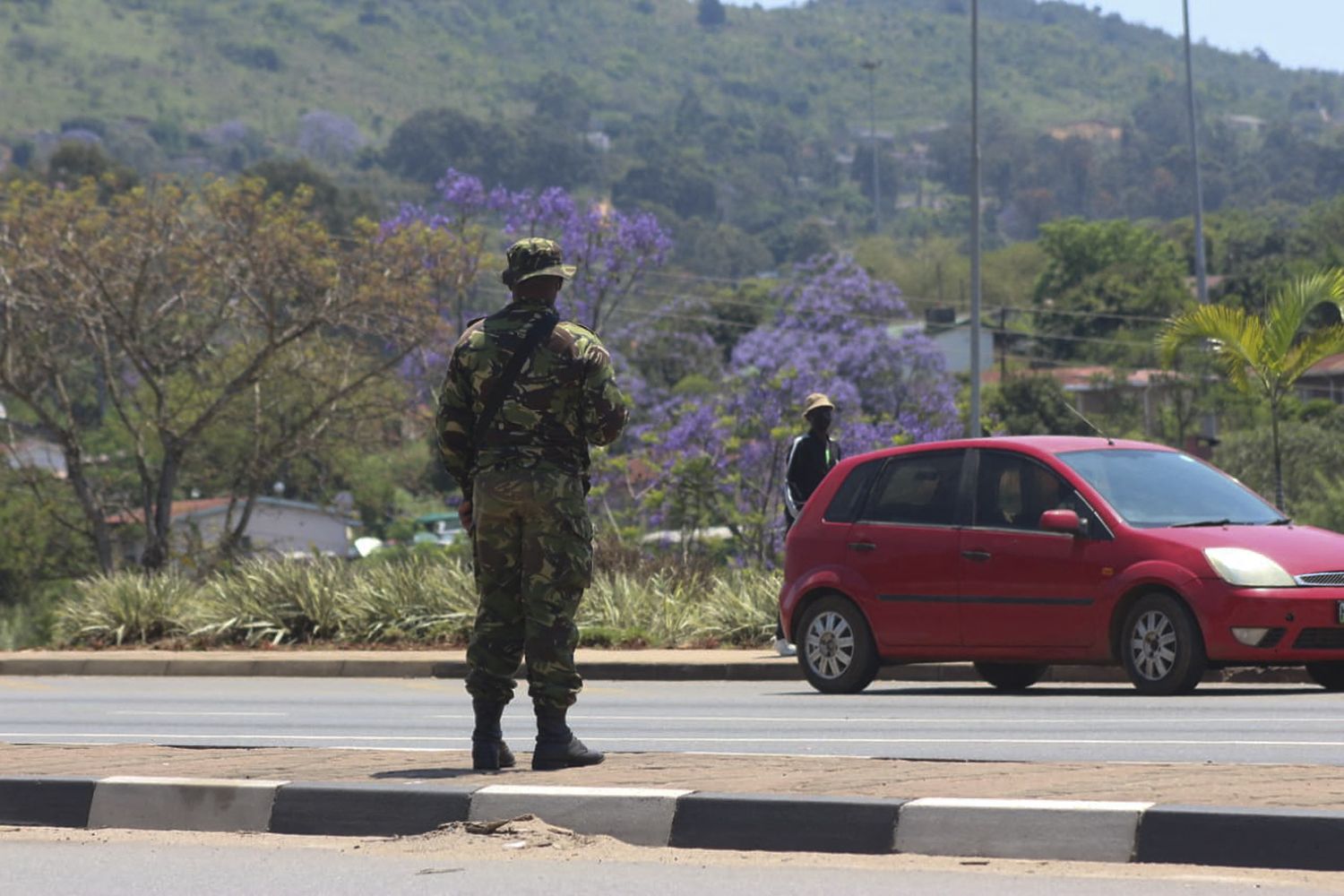There has been mixed reaction from experts on President Cyril Ramaphosa’s undertaking on Tuesday to engage eSwatini on political instability.

At least 80 people were injured in Eswatini on 20 October 2021, a union leader said, as security forces cracked down on escalating pro-democracy protests. Photo: AFP
While there has been mixed reaction from political experts on President Cyril Ramaphosa’s undertaking on Tuesday to engage Eswatini’s King Mswati III on political instability in the neighbouring country, the Swaziland Solidarity Network (SSN) welcomed the intervention.
The SSN said it sent “a clear message to King Mswati III to work towards a peaceful political transition”.
Pro democracy protests have recently led to at least seven people being shot dead by Mswati III’s security forces. Describing the engagement with Mswati as “a working visit for deliberations on political and security developments in the kingdom”, the presidency said
Ramaphosa, accompanied by Minister of International Relations and Cooperation Dr Naledi Pandor, would meet the king.
ALSO READ: King Mswati III wants to discuss unrest, but activists call for boycott
In his capacity as chair of the Southern Africa Development Community (SADC) organ on politics, defence and security, Ramaphosa last month dispatched a mission of special envoys, led by former minister Jeff Radebe, to Eswatini.
SSN spokesperson Lucky Lukhele said he welcomed “the speed with which the chair of the troika in the SADC seems be approaching the political crisis in Swaziland”.
“We welcome this because less than two weeks ago, he sent envoys to Swaziland led by former minister Radebe. ow he and minister Dr Naledi Pandor are there. We hope he sends a clear message to King Mswati III that he can no
longer be the sole representative of the people of Swaziland, given the massacre and the crime he has committed against the people of Swaziland, with the number of people so far killed since the first protests estimated at 100.
“The king must now be treated as being equal to leaders of civil society and those of the progressive movement of Swaziland.
“Before any meaningful negotiations can take place, all obstacles should be removed, which include the unbanning of all political parties, unconditional release of political prisoners and the return of all exiles.”
Political analysts had mixed reactions to Ramaphosa’s visit, with University of Johannesburg prof Siphamandla Zondi saying it was “crucial for the chairperson of the SADC organ to engage with the Swazi king and government to express the region’s concerns about the crisis in that country and the displeasure about use of violence against citizens”.
“It could also allow him an opportunity to insist that the Isibaya Dialogue be all-inclusive. It also signals that Eswatini is now being assisted to solve its old issues, usually a mark of failure on the part of government to exercise its sovereign right to solve domestic affairs.
“This justifies the SADC intervention that has now started,” said Zondi.
ALSO READ: Uneasy calm as King Mswati goes into seclusion
Independent political analyst Dr Ralph Mathekga said it was “still too early to expect a breakthrough in Swaziland”.
Wits University politics professor Loren Landau said it seemed the king was “determined to eliminate opposition to his absolute power”.
“Unless Mswati is prepared to compromise and surrender a substantial level of control, the crisis and protests will merely have been repressed not resolved.”
University of Pretoria politics lecturer Roland Henwood said Ramaphosa had “many options and tools to use to create pressure”, depending on how far SA was willing to go.
“These include putting real political and economic pressure – and receiving support from alliance partners. The challenge is the close family ties of Eswatini royals to KwaZulu-Natal.”
– brians@citizen.co.za
Download our app




